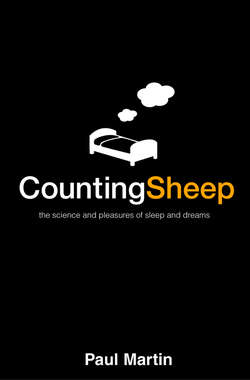Читать книгу Counting Sheep: The Science and Pleasures of Sleep and Dreams - Paul Martin - Страница 36
Sleepless in hospital
ОглавлениеI have the feeling that once I am at home again I shall need to sleep three weeks on end to get rested from the rest I have had.
Thomas Mann, The Magic Mountain (1924)
Sleep is good for you and lack of sleep is bad. It therefore seems odd that hospitals, which are supposed to promote recovery, are usually dreadful environments for sleeping. ‘The hospital bed,’ wrote one historian, ‘is one in which normal sleep is forbidden.’ A Punch cartoon of 1906 shows a patient being told to ‘wake up and take your sleeping-draught’. Things have improved since 1906, but not much.
Sick people really do benefit from sleep. We saw earlier how the brain and the immune system respond naturally to infection by inducing sleep. This helps the body cope with disease in several ways. The production of growth hormone occurs mainly during sleep, and growth hormone aids physical recovery by promoting the healing of mucous membranes and in other ways. The hormone melatonin, which is also produced at night, boosts immune responses, inhibits the growth of tumours and enhances resistance to viral infections. Conversely, sleep deprivation impairs immunity and slows the healing process. Given the importance of sleep for recovery, it is ironic that hospital patients are routinely subjected to conditions that make normal sleep almost impossible.
Sick people start with big disadvantages, of course. Pain is a powerful disrupter of sleep. Patients suffering from chronic, severe pain often become exhausted. Disrupted sleep is a common complication of burn injuries, for example. Studies have found that between half and three quarters of burns patients experience significant sleep disturbances. Sleep problems are common among cancer patients too. Fatigue can become one of the most distressing aspects of having cancer, severely reducing the quality of life. While medical treatments for cancer have advanced apace, efforts to improve patients’ quality of life by alleviating their fatigue have lagged behind.
To make matters worse, tired people are more sensitive to pain. Sleep deprivation lowers pain thresholds, generating a vicious cycle in which pain disrupts sleep, the resulting sleep loss makes the pain feel even worse, and so on. An investigation of patients with burns injuries uncovered a systematic link between the quality of their sleep and subsequent pain. Patients who slept poorly during the night experienced more intense pain the following day, because the fatigue intensified their perception of pain.
One of the worst places imaginable if you need a good night’s sleep is an intensive care unit (ICU). The combination of serious illness, serious drugs, constant monitoring, bright lighting and the aftereffects of surgery ensures that ICU patients are often subjected to severe sleep deprivation. And yet the ICU houses the sickest people in the hospital, with the greatest need for sleep. American researchers conducted an experiment to see if implementing regular ‘quiet times’ during the day would help ICU patients to get more sleep. Each day for two two-hour periods, lighting levels in the unit were reduced and the staff made a concerted effort to minimise noise. The ‘quiet-time’ regime worked: the patients were 60 per cent more likely to sleep during these quiet periods than at other times of the day. More flexibility over when patients are given their medication can also help them to get more sleep.
Sadly, the apparent neglect of sleep in hospitals is another reflection of the general disregard for sleep in medicine and society as a whole. Lack of sleep really does have very little to recommend it.
